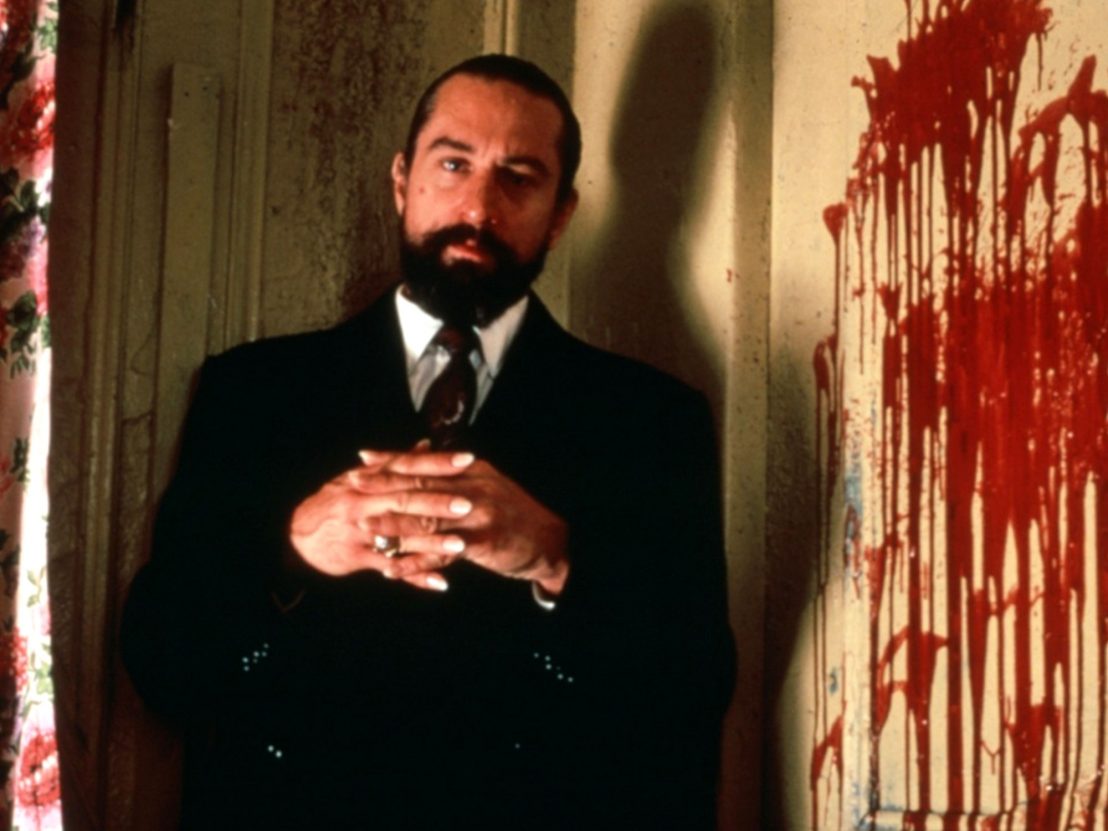
“No matter how cleverly you sneak up on a mirror, your reflection always looks you straight in the eye.” This is one of the many philosophical sound bites offered up by Robert De Niro’s enigmatic, wealthy puppet master Louis Cyphre to shabby private detective Harry Angel (Mickey Rourke). Wrapped up in the weirdness of this line is the key to director Alan Parker’s bizarre marriage of noir and horror in his 1987 film Angel Heart.
Rarely have the words ‘psychological’, ‘horror’ and ‘neo-noir’ slotted together so neatly, although admittedly it initially seems like a pretty hellish cocktail. Yet hellish is the chief aesthetic in a story of missing persons and ancient cults with an undercurrent of bloodlust, all of which Rourke’s Angel finds himself caught squarely at the centre of.
A private detective by trade, Angel inhabits a familiar noir setting – his desk littered with ash trays and covered in dossiers of the living and the dead; his suits drab and ill-fitting. He is someone we immediately identify with. A regular Joe. A guy who drinks, smokes, is prone to making sarcastic quips and, occasionally, snooping around Brooklyn tenements on the trail of ne’er-do-wells.
But Angel’s everyman persona soon becomes distorted as he is approached by De Niro’s Cyphre, a strange figure who invites Angel to find an old blues barfly from before the war named Johnny Favourite. Already we’re firmly in Damon Runyon territory, a land of nicknames and crooners with ties to the mafia all along Broadway. But Angel Heart has none of the wit or pomp of its earlier antecedents and denies any comfort in the crimes it foretells.
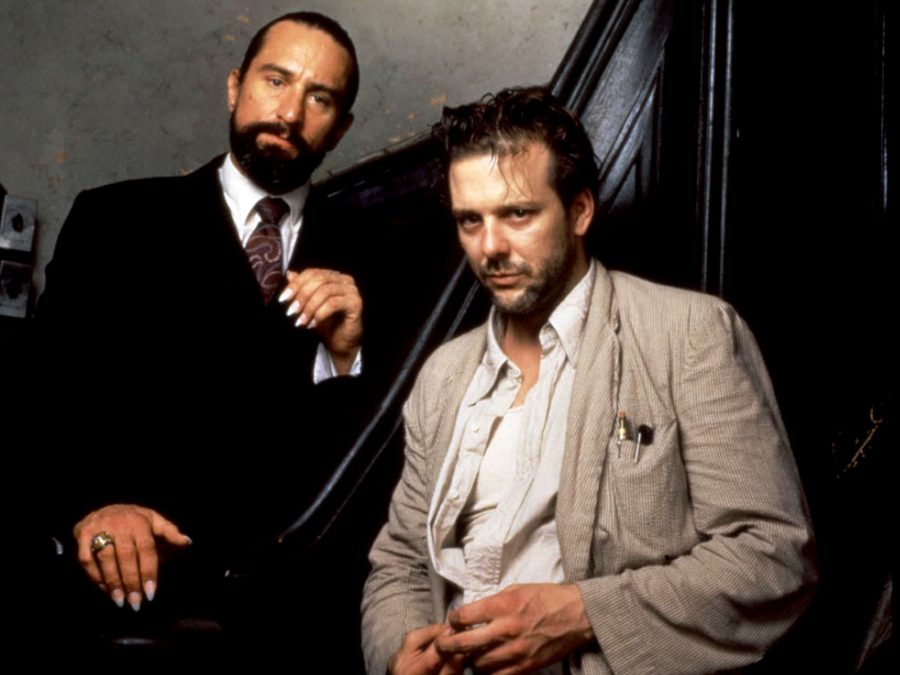
Angel reluctantly agrees to the case, but after finding his first lead, a morphine-addicted doctor named Albert Fowler, dead by a self-inflicted gunshot wound to the head he tells Cyphre he’s done. Rourke’s wise-cracking performance is as compelling as it is convincing, deeply rooted as it is in the hardboiled noir detective trope.
It’s hard to blame him for wanting out after a “stiff” shows up within days of his investigation, but Cyphre isn’t ready to loosen his stranglehold on Angel after such a short dalliance with death. He offers him $5000 and Angel agrees to carry on. What follows is a narrative of fortune tellers, blues guitarists, cult sacrifice and a schizophrenic dissolution of identity all glued together by a seemingly endless supply of blood.
Since its original release 30 years ago Angel Heart has found a loyal cult following, and it’s not hard to see why – it is hard not to be drawn to a film that places the devil and the detective in such close proximity. Rourke’s performance is largely responsible for the film’s enduring appeal, and while De Niro’s role is not one of his most memorable, Lisa Bonet enriches the film’s occult and spiritual themes with a sensuous and scary turn as Voodoo priestess Epiphany Proudfoot.
A cult film in every sense of the word, Angel Heart manages to take many of the well-worn tropes of film noir and imbue them with the concentric horror of Dante’s Inferno. It seemed implausible in 1987, and perhaps even more so now, that such a genre mash-up could be so grimly spellbinding. Harry Angel’s dark journey through the past evils of man is a case ready to be picked up again. A word of caution though: you may well return from it a different person altogether.
Published 6 Mar 2017
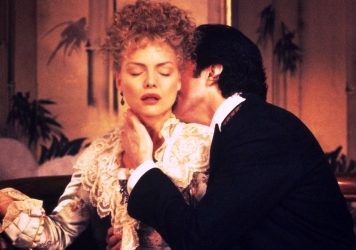
By Dan Einav
The director’s 1993 period drama is just as devastating as the likes of Taxi Driver and Goodfellas.
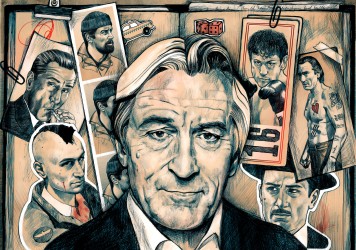
By Matt Thrift
Dirty Grandpa may be an indefensible dud, but the actor’s recent output is nowhere near as bad as everyone seems to think.
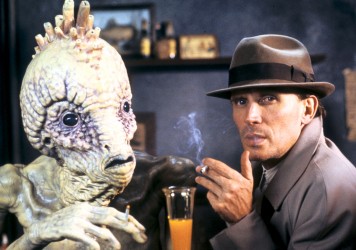
By Tom Graham
Twenty five years on David Cronenberg’s adaptation of William Burroughs’ classic novel remains a bold and transgressive vision.